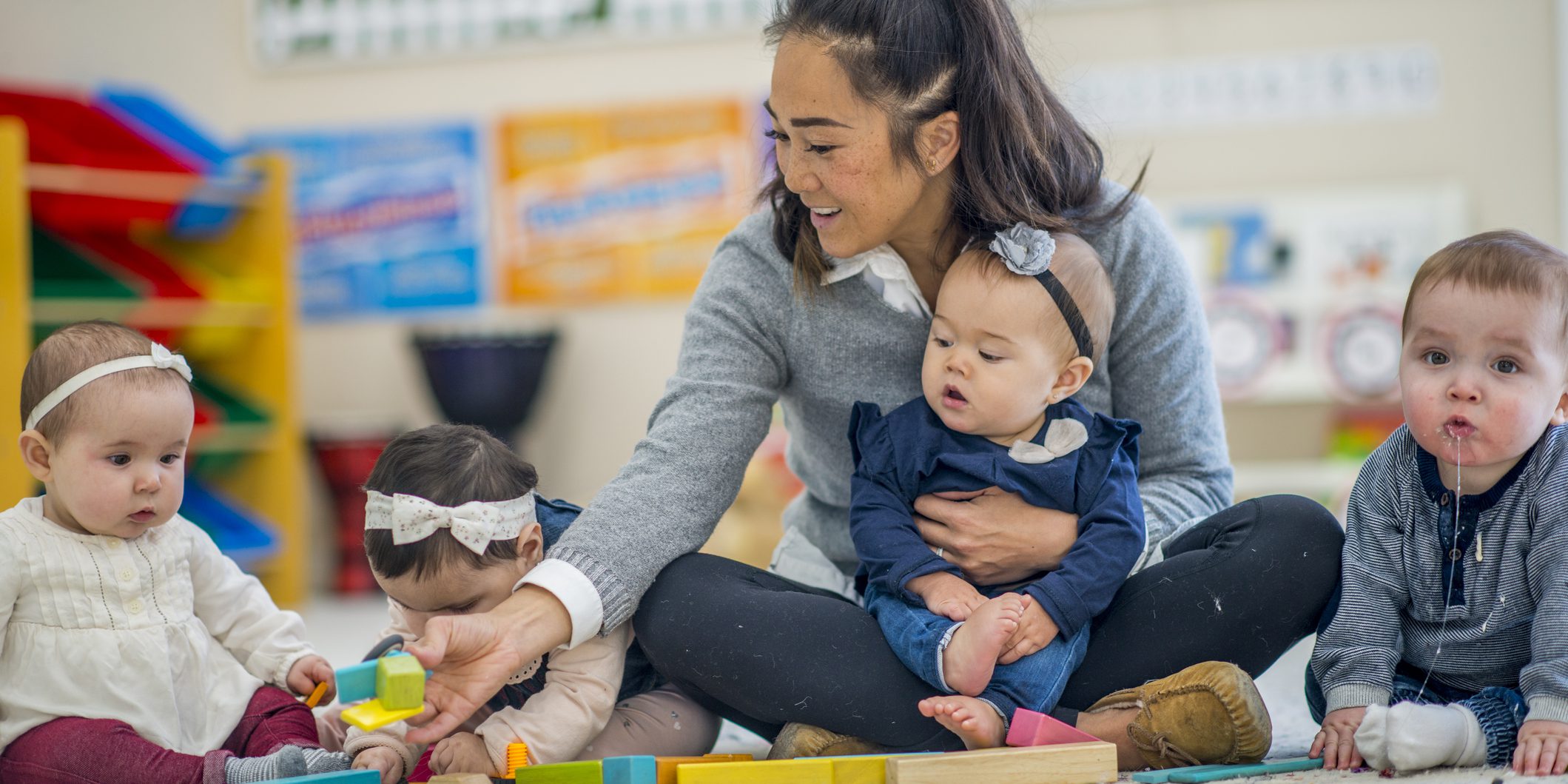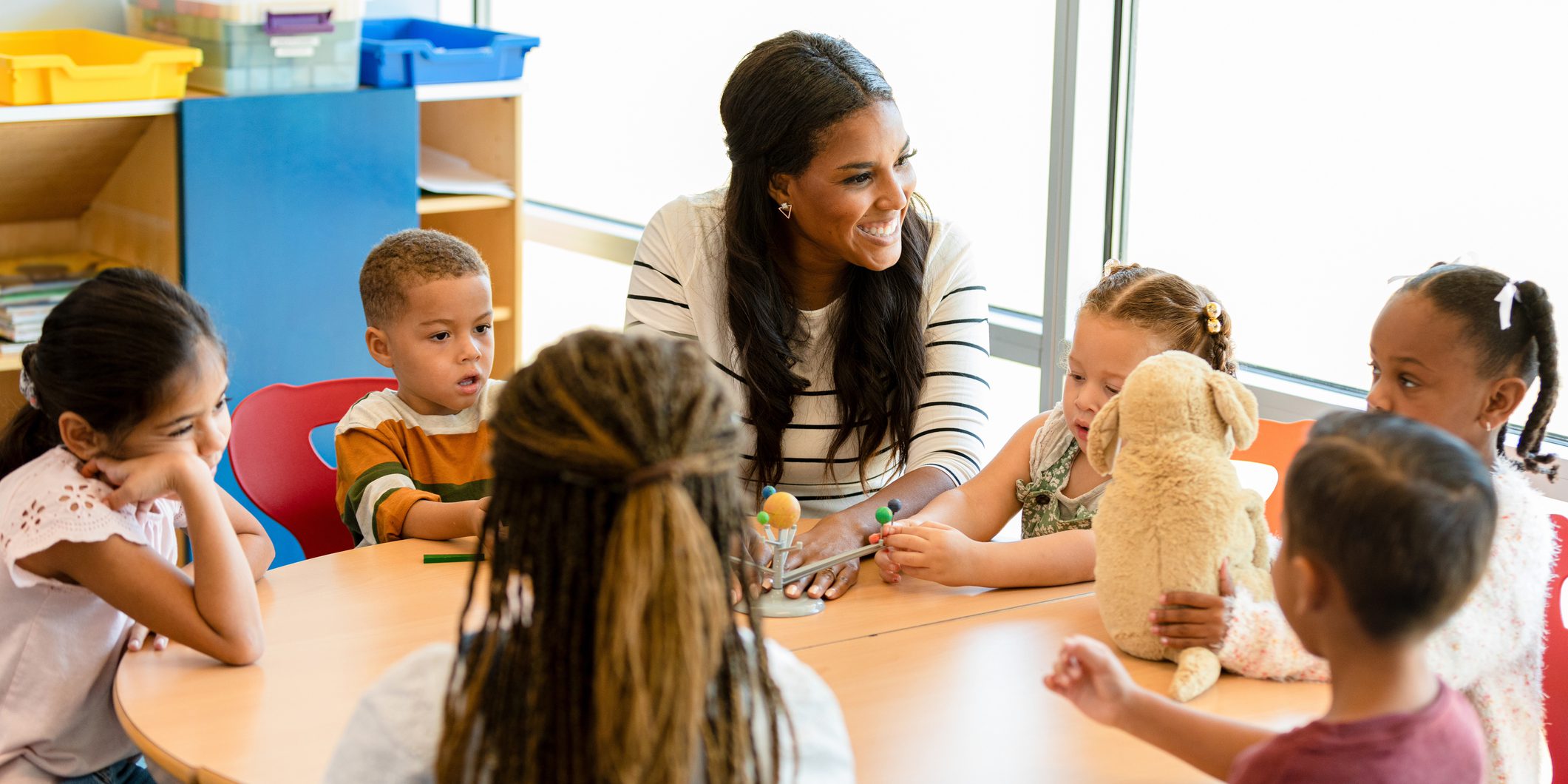This measure assesses how the teacher talks to children throughout the day during activities, including diaper change, feeding, mealtime, outdoor play, and group events. While teachers are likely to have brief periods of low verbal engagement (momentary distraction, allowing children time to explore or talk among themselves), teachers are generally expected to speak with children across various activities and daily routines. This measure also notes whether the teacher’s communication goes beyond basic communication, including stimulation that supports learning and child engagement. For example, during snack time, the teacher can sit with the children and talk to them about the nutrients in their snacks versus standing on one side to monitor the children.
Category: Category 2: Teacher-Child Interactions
Subcategory: Language Facilitation and Support
Examples
In this section you will find videos, images, and/or documents that can be used to better understand this measure. These examples can also be used in conversations between mentors, directors, and/or teachers to discuss how the program's current practices compare to these examples.
Video Example
The video exemplar highlights moments throughout the day classroom teachers can communicate with children. Routines such as hand-washing, center time, and small groups provide teachers with opportunities to have meaningful and rich conversations.
Age(s): Infant, Toddler, Preschool, School-age
Video Example
This learning module from the WGBH Educational Foundation highlights toddler and preschool classroom teachers’ opportunities to create meaningful conversations with children. The module includes a video and a series of reflective questions for teachers to consider how to consistently communicate with children throughout the day.
Age(s): Toddler, Preschool
Video Example
The learning module video is an example to teachers on how to use rich language when communicating with children throughout the day. The module includes a video and a series of reflective questions for toddler and preschool teachers to consider how to use complex vocabulary and expand sentence structures when speaking with children.
Age(s): Toddler, Preschool
Video Example
This professional development video from the WGBH Educational Foundation shows how infant and toddler teachers can have meaningful conversations by imitating and then responding to children’s signals. Teachers can respond to children’s nonverbal and verbal signals to facilitate language across various contexts.
Age(s): Infant, Toddler
Video Example
This video from the WGBH Educational Foundation shows the importance of communicating with infants throughout the day. From this video, infant teachers can see how to provide infants with language stimulation during the day’s routines and activities.
Age(s): Infant
Practice Opportunities
These resources include tips, strategies, activities, or specific tools related to this measure that programs can put into practice.
Activity
In this activity, the caregiver will engage an infant in a “conversation” during a routine daily activity. Caregivers can talk to babies and imitate sounds during diaper changes, mealtimes, and tummy time.
Age(s): Infant
Activity
In this activity, children identify and draw items they find on a nature walk. The teacher can support each group of children by having conversations with them about what they find, what they notice, and what they’re drawing. The teacher can also describe how children help each other.
Age(s): Preschool
Activity
Toddlers practice taking turns in conversation with a teacher during a meal or snack. Caregivers can label what children are eating and use rich vocabulary to describe the food to build children’s language.
Age(s): Toddler
Publication
This publication from PennState Extension explains how mealtime–breakfast, lunch, snack, or dinner–can support children’s early language and literacy development. This resource gives a list of “conversation starter” questions and food recipes with instructions to support teachers in having meaningful conversations at the table.
Age(s): Infant, Toddler, Preschool, School-age








